Listen
The general election is now Ed Miliband’s to lose. This is not a controversial statement: the polls say it, the bookmakers say it and in the last week several of David Cameron’s own ministers have come to believe it. The confidence that seemed to envelop the Conservative party before the summer recess has been replaced by a sense of doom. On its own, Douglas Carswell’s defection to Ukip would not be seen as a body blow — but it hammers home the fact that the right is fractured and many Tory voters made the jump long ago. A party that should be readying itself for victory is now preparing to tear itself apart in opposition.
The Scottish Tory leader, Ruth Davidson, this week felt that she may as well say in public what her colleagues are saying in private. She assured Scots that her party is not ‘likely’ to win the next Westminster election. Even one normally ebullient cabinet minister tells me: ‘I struggle to see how we win now.’
Several Tory MPs are already planning their careers on the assumption that the election is lost. One cabinet minister concedes that in the current atmosphere, it will be very hard to prevent this year’s Tory conference from turning into a leadership beauty parade, as the relative merits of Johnson, Theresa May and the rest are compared. Some think that Ukip is here to stay, and can see why Carswell (who was under threat in his Clacton constituency after Ukip selected a candidate to stand against him) decided to join them, rather than fight them.
It’s likely that more defections will follow — and the hunt is on for the next Tory turncoat. As one government source explains: ‘One thing we have to be wary about is the high level of secrecy that surrounded Cars-well’s defection. We don’t know if there are other people primed to do stupid things.’ Tory chiefs are now monitoring MPs’ use of Merlin, the party’s electoral database. They believe that about three weeks before Cars-well went public with his defection he logged on and accessed the data that he would need to fight the by-election. Polls suggest that, as a Ukip candidate, he will crush whoever the Tories choose to fight him.
For some time now, polls have shown Ukip as the real third force in British politics — but under the Westminster system it’s hard for insurgents to make the breakthrough of winning an actual seat. This suppresses their support as it makes it easy to claim that a vote for them is a wasted vote.
But if Carswell makes it to the Commons, he’ll deepen the split in the right and give Ukip another layer of respectability. Which, in turn, will help its chances next year. As one minister concedes, ‘If Carswell’s defection and the boost to Ukip of having an MP only increases what they would have got at the election by 1 per cent, it will still cost us a bunch of marginal seats.’ And given how tight the marginals will be at the next election, the Tories can barely afford that.
David Cameron did not create this split on the right: it goes way back. But the divide now looks far bigger, and more like a permanent electoral fixture. What’s worse is the degree of hatred involved, a cycle of reprisals and political violence for its own sake. As one Tory MP puts it, ‘It has that civil war quality to it: people just want to harm the other side.’ Even after defeat, there’ll be no easy reunification of the right. Indeed, MPs on the left of the party are convinced that Carswell defected because he feared that Cameron might actually win, vindicating his form of moderate Conservatism.
Certainly, Cameron’s management of his party’s internal coalition has been appalling. Even before the Carswell defection, one Tory MP had nicknamed him Sir David Peel, a nod to the last leader to split the Tories. One long-serving Tory MP complains that what makes Cameron’s handling of the party so galling is ‘that we can see how he turns on the charm with the Libs, but he just won’t bother with us’. Even one Cameron loyalist bemoans how the Prime Minister has put himself at risk of ‘suffering death from a thousand slights’.
The Cameron leadership failed to grasp that the era of command and control politics was coming to an end. As one more reflective cabinet minister remarks, ‘Cameron became leader in the age of Blair and the pager. But he’s ended up as Prime Minister in the age of Twitter, when everyone is on broadcast — not receive — mode.’
In office, Cameron hasn’t changed. He stands accused of being an incompetent Namierite — an insider who doesn’t know the inside track. For instance, no one in No. 10 fully realised the damage that sacking Owen Paterson — the reforming, right-wing and well respected Environment Secretary — would inflict on Cameron’s relations with various parts of the Conservative family. All of this explains why so many on the right struggle to feel sympathy for Cameron now. A strikingly large number of backbenchers talk with glee about the leadership contest that so many of them expect next summer. There is much speculation about what a Boris Johnson leadership would mean. A handful are even pushing the so-called ‘Aznar option’, which would involve Cameron staying on as Prime Minister but somebody else — most likely, Boris Johnson — becoming Tory leader.
This plan is supported only on the fringes — a more popular solution is an early end to the coalition. Advocates of this idea argue that it would not only allow the party to show the voters what it would try to do with a majority but might also help the Liberal Democrats regain some of their left-wing support, which would be good for the Tories in their battle with Labour. The proposal has considerable backing all the way up to the cabinet. But one influential Downing Street figure tells me that ‘Irrespective of its merits, it is not going to happen. Cameron absolutely hates the idea.’
No. 10’s hope is that a combination of the economy and the Tory advantage on leadership and security can still deliver victory. But for this to happen, the Prime Minister needs to stop making unforced errors. His decision to don a wetsuit on a popular public beach where he was bound to be snapped, just days after the brutal murder of James Foley by a British jihadi, was a misjudgment. It was equally jarring for him to come back to the House of Commons to make a statement on new anti-terror measures.
Such minor mistakes stack up. The lack of detail and coalition and legal backing for many of the anti-terror proposals that Cameron has put forward in the past few days weakened him further in the eyes of his party. When he suggests something that is unlikely ever to happen, such as barring British citizens from returning to this country, he devalues the Tories’ most precious commodity: his credibility.
Cameron specialises in getting out of tight corners (as well as getting into them). He may yet wriggle out of this one. Michael Gove’s regular appearances in Downing Street should make No. 10 sharper and give it more of a domestic political focus (he was abroad when Carswell jumped ship). His presence will offset the distorting effect that having a foreign policy specialist — Ed Llewellyn — as Chief of Staff has had. After nine years, the Cameroons now accept that their approach to the party is flawed. As one Downing Street figure puts it, ‘We have got a lot of things wrong on party management in the past. If it was all perfect, Douglas wouldn’t have walked out.’ This realisation should lead to better relations between Cameron and his party.
Cameron’s last, best hope is Ed Miliband. The Labour leader seeks radical change, much of it alarming for those on the right. Rather than keep quiet until polling day, he will seek a mandate. This may focus Tory minds. After all, even Tory rebels have to live in Britain for the five years of a Labour government. The right is more divided than it has been for 40 years and the left more united. A Conservative defeat is not inevitable. But the Tories need to realise that they must hang together or they will all hang separately.
Got something to add? Join the discussion and comment below.
Get 10 issues for just $10
Subscribe to The Spectator Australia today for the next 10 magazine issues, plus full online access, for just $10.
You might disagree with half of it, but you’ll enjoy reading all of it. Try your first month for free, then just $2 a week for the remainder of your first year.


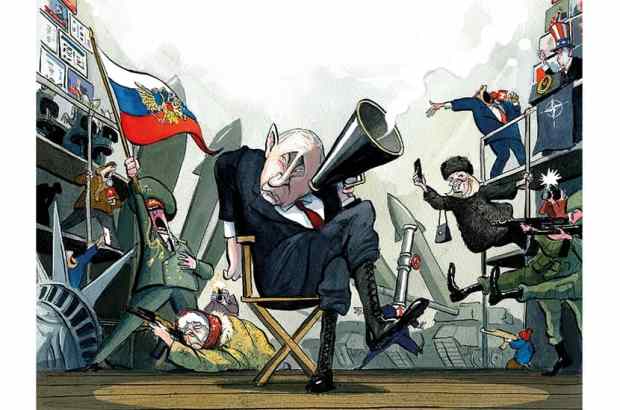
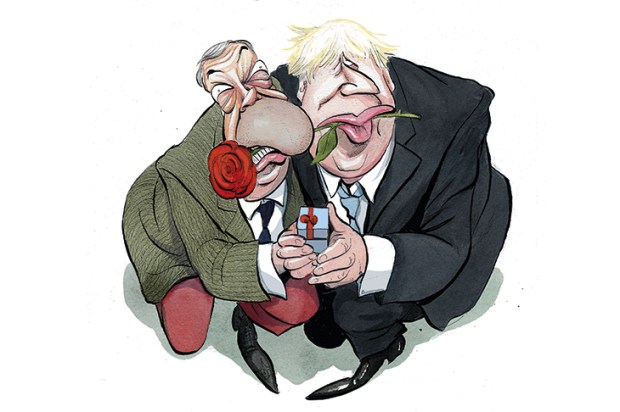
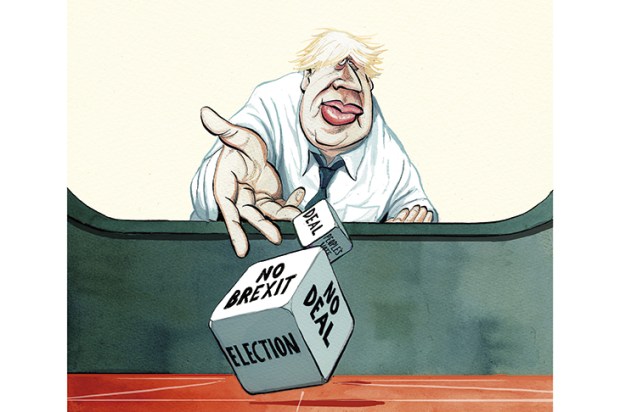
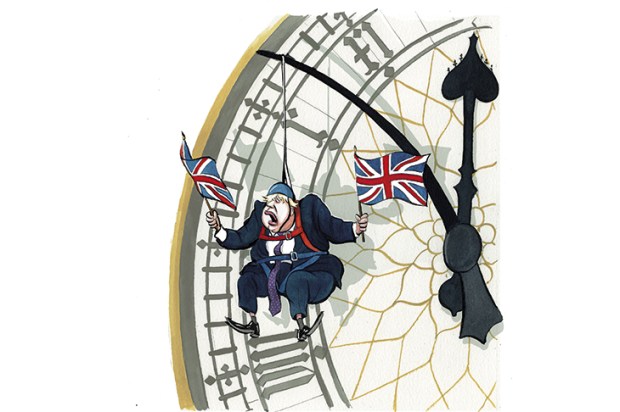
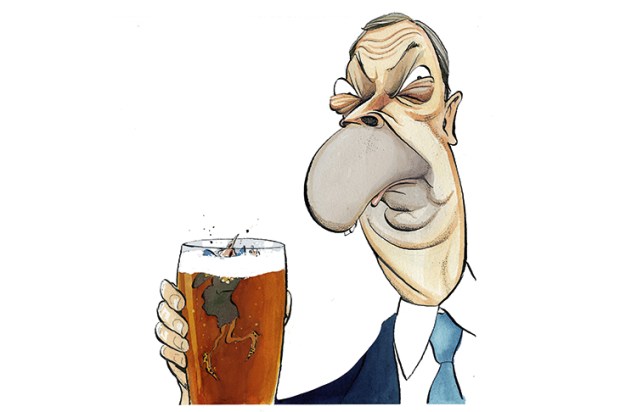







Comments
Don't miss out
Join the conversation with other Spectator Australia readers. Subscribe to leave a comment.
SUBSCRIBEAlready a subscriber? Log in